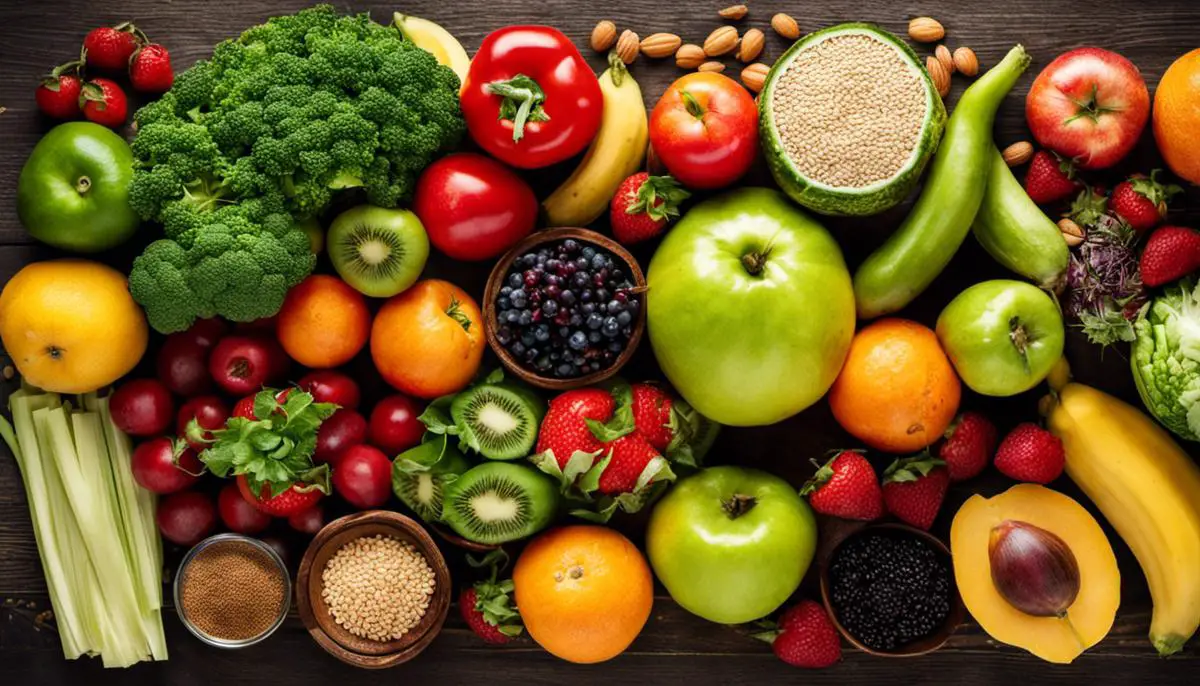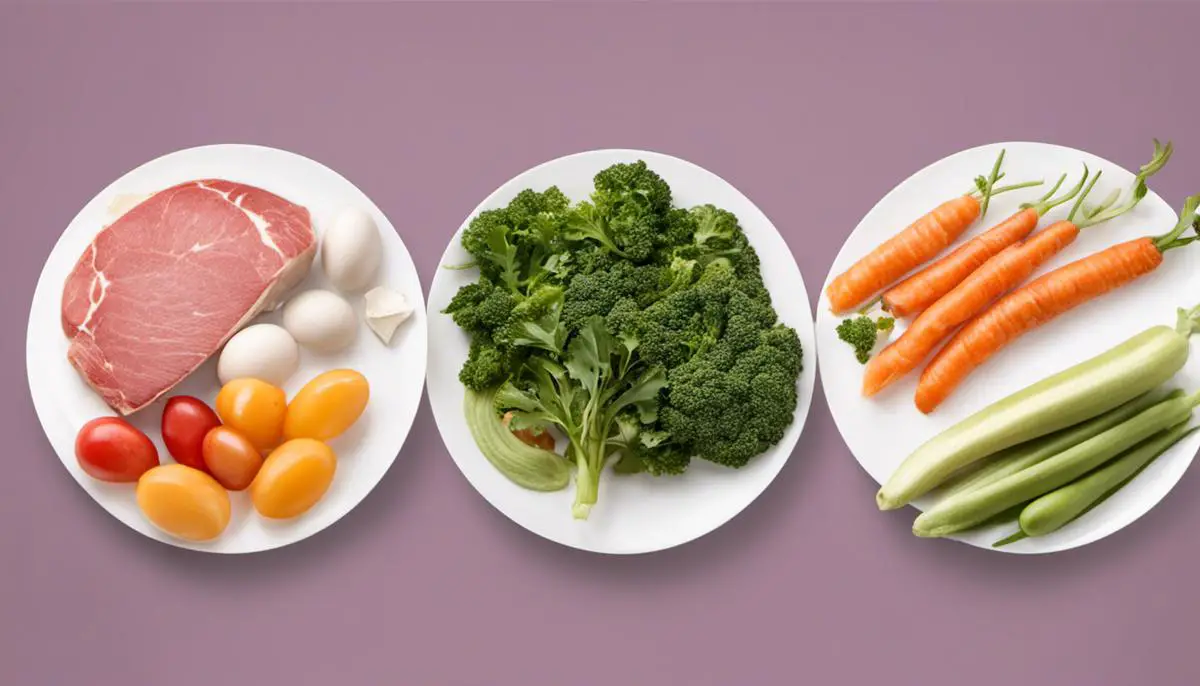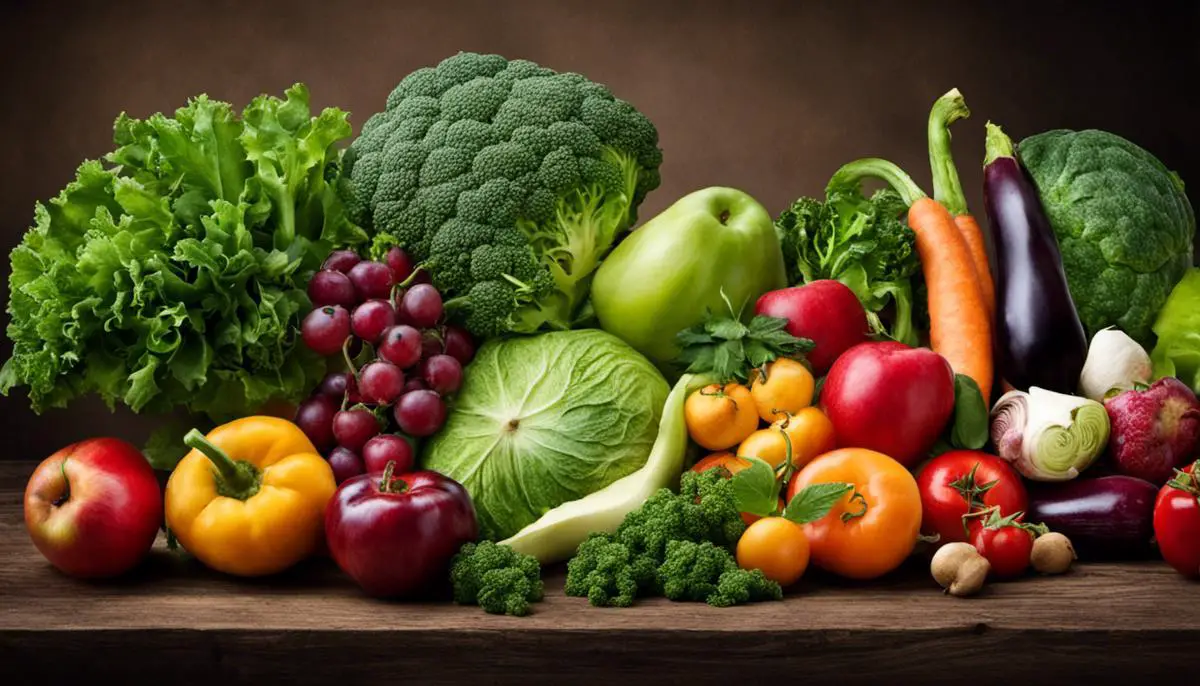With a rising consciousness towards our health, environment, and ethical responsibilities, many are shifting towards a plant-based lifestyle, namely vegetarianism. This dietary choice, rooted in diverse reasons ranging from personal well-being to global sustainability, has garnered much attention and fostered an important dialogue. The purpose of this article is to delve into the potential benefits of a vegetarian diet, the components of a nutritionally balanced plant-based meal, the environmental and moral implications of vegetarianism, and practical tips for making the switch. Through comprehensive research and analysis of authoritative nutritional studies, this article aims to provide a nuanced perspective to understand vegetarianism better and make informed dietary choices.
Benefits of Vegetarian Diet
Health Benefits of a Vegetarian Diet
The adoption of a vegetarian diet is associated with numerous health benefits, one of which is weight loss. Vegetarian diets are often lower in calories and fats, naturally leading to a lower body mass index (BMI). A study published in the Journal of the Academy of Nutrition and Dietetics found that those who adhere to a vegetarian diet tend to consume fewer calories than non-vegetarians, promoting a healthier body weight.
Further advantages include improved heart health. Vegetarian diets generally consist of significant amounts of fiber, antioxidants, and plant sterols, which can help lower cholesterol levels. According to a study in the American Journal of Cardiology, vegetarians have a 12% lower risk of dying from heart disease compared to non-vegetarians.
In regards to diabetes control, a vegetarian diet can be beneficial for those with type 2 diabetes. A diet rich in plant foods such as whole grains, legumes, nuts, and seeds contributes to better glycemic control and lower blood sugar levels. The American Diabetes Association has affirmed that vegetarian and vegan diets meet all the recommendations for nutrients necessary for diabetes management.
Cancer Prevention and a Vegetarian Diet
Adopting a vegetarian diet can also play a role in cancer prevention. The richness of fruits, vegetables, and whole grains in a vegetarian diet provides an abundant supply of antioxidants that help fight free radicals in the body, reducing the risk of certain types of cancer. An extensive study by the World Health Organization found that vegetarians have a lower risk of developing cancer compared to meat-eaters, especially colorectal, breast, and prostate cancer.
Addressing Nutrient Deficiencies in a Vegetarian Diet
Vegetarian diets can be incredibly beneficial but must be properly designed to avoid potential nutrient deficiencies. Nutrients of concern may include iron, vitamin B12, calcium, omega-3 fatty acids, and protein. However, with the right planning and knowledge, it’s possible to meet these needs entirely through a vegetarian diet.
Iron can be obtained through plant-based foods such as lentils, chickpeas, tofu, and fortified cereals. Adding vitamin C-rich foods to meals can also aid iron absorption. Vegans and vegetarians can rely on fortified foods or supplements for vitamin B12, a nutrient typically found in animal products.
While lacto-vegetarians can achieve their calcium needs from dairy products, those consuming an entirely plant-based diet can source calcium from fortified plant milk, kale, and almonds. Omega-3 fatty acids, essential for brain functionality and heart health, can be found in flax seeds, chia seeds, walnuts, and hemp seeds.
Lastly, protein, which is often a concern for vegetarians, can be amply supplied through a well-balanced diet. Foods like legumes, nuts, seeds, whole grains, and soy products are excellent sources of protein for vegetarians.
Keeping these points in mind, a vegetarian diet can be both nutritious and fulfilling, providing all the vital nutrients for healthy functioning.

Composition of a Balanced Vegetarian Diet
Prioritizing Protein Sources in a Vegetarian Diet
Though a commonly cited concern, vegetarians have an array of options for fulfilling their protein needs. Legumes such as lentils, and chickpeas, along with tempeh, tofu, and beans, are wonderful, protein-dense choices. Other sources include quinoa, various nuts, and seeds. Whole grain products like bread and pasta further contribute to protein intake.
For those open to consuming animal products, dairy, and eggs can also significantly contribute to meeting protein needs. Another option is plant-based protein powders derived from peas, hemp, or brown rice. These can be added to meals or shakes for a simple protein boost.
Thus, navigating a vegetarian diet doesn’t have to mean compromising on protein. With a variety of plant-based protein sources available, it’s possible to meet and even exceed protein requirements on a vegetarian diet.
The Role of Fruits and Vegetables
Fruits and vegetables are cornerstones of a balanced vegetarian diet because of their high nutrient density relative to their calorie count. They provide essential vitamins and minerals, including antioxidants and phytochemicals which promote overall health and fight chronic diseases. Eating a variety of fruits and vegetables ensures a wider range of nutrient intake.
Importance of Whole Grains
Whole grains, unlike refined grains, retain all parts of the grain — the bran, germ, and endosperm. Foods made from these grains are rich in fiber, B vitamins, and minerals like iron, magnesium, and selenium. Whole grains also provide some protein. Common whole grains are brown rice, whole wheat, oats, barley, and millet.
Good Fats for Vegetarians
It’s essential to incorporate good fats into a vegetarian diet to maintain optimal health. Monounsaturated and polyunsaturated fats, including omega-3 and omega-6 fatty acids, are considered healthy fats. These fats can be found in avocados, olive oil, nuts and seeds, chia seeds, flaxseeds, and fatty fish for pescetarians.
Vitamins and Minerals in a Vegetarian Diet
Vitamins and minerals are crucial for various bodily functions, and deficiencies can lead to health problems. Some nutrients of particular concern for vegetarians include Vitamin B12, Vitamin D, Omega-3 fatty acids, Iron, Zinc, and Calcium.
Vitamin B12 is found almost exclusively in animal products, so supplementation may be needed. Vitamin D can be obtained from sunlight exposure or supplemented. Plant-based Omega-3 can be found in flaxseeds, chia seeds, hemp seeds, and walnuts. Iron sources include lentils, chickpeas, tofu, and fortified cereals. Zinc can be found in cashews, pumpkin seeds, and whole grains. Lastly, calcium is high in dairy products for lacto-vegetarians and can also be found in fortified plant milk, tofu made with calcium sulfate, and certain greens like kale and bok choy for strictly plant-based eaters.
Vegetarianism is a lifestyle that conspires to sustain a nutrient-rich diet solely from plant-based foods. Incorporating a variety of proteins, fruits, leafy green vegetables, whole grains, and beneficial fats can ensure adequate nutrient intake. Moreover, while all diets need to include all the necessary vitamins and minerals, vegetarians must be particularly mindful to avoid nutrient deficiencies by varied eating and consider taking targeted supplements as necessary.

Environmental and Ethical Perspectives on Vegetarianism
Tangible Environmental Advantages of a Vegetarian Lifestyle
Transitioning to a vegetarian lifestyle can also be a significant contribution to mitigating environmental issues. The agriculture sector, particularly livestock farming, triggers hefty greenhouse gas emissions. These emissions consist of carbon dioxide, methane, and nitrous oxide, significantly contributing to the global climate crisis. According to the United Nations Food and Agriculture Organization, livestock farming causes approximately 14.5% of all man-made greenhouse gas emissions. Consequently, fewer people consuming animal products directly translates to diminished demand, thus potentially mitigating these harmful environmental effects.
Water Conservation and Land Use
Water conservation is another notable advantage linked to vegetarianism. It requires substantially less water to produce plant-based foods than animal-based foods. For instance, it roughly takes 2,500 gallons of water to produce a pound of beef, while only 25 gallons of water are needed to grow a pound of wheat. Consequently, a shift towards vegetarianism could significantly decrease water use.
Similarly, livestock farming requires a vast amount of land, far more than what is needed for growing crops. According to a report by the World Bank, livestock farming uses approximately 30% of the Earth’s land surface. This land could be better used for crop production if more individuals adopted vegetarian diets, potentially reducing hunger and malnutrition globally.
The Ethical Dimension of Vegetarianism
Alongside these environmental aspects, many individuals choose vegetarianism due to ethical reasons. Central to this is the concern for animal welfare. Many people believe that animals have the right not to suffer, and they reject intensive farming practices that often involve cruelty and harm to animals. By choosing a vegetarian diet, they refuse to endorse these practices, a decision often rooted in their values related to compassion, empathy, and respect for all living beings.
Animal Ethics and Health
Some who identify as vegetarians are driven by a larger philosophy of “not harm.” They may view the slaughtering of animals, regardless of how humanely it’s done, as an unnecessary act of violence when sufficient nutrition can be achieved through plant-based sources.
Some health-conscious individuals switch to a vegetarian diet mainly for its reported health benefits, including lower risks of heart disease, high blood pressure, type 2 diabetes, and certain cancers. However, their dietary choice also allows them to contribute positively to the environment and take a stand against animal cruelty, portraying vegetarianism as an ethically sound lifestyle choice.
Understanding the Benefits of a Vegetarian Diet
Encompassed with the choice to adopt a vegetarian diet are both environmental and ethical benefits. Notably, animal agriculture contributes significantly to greenhouse gas emissions, water usage, and land degradation. Therefore, moving away from a diet heavy on animal products can be a proactive step towards preserving our planet. Concurrently, acknowledging the ethical aspects of our dietary choices encourages a greater empathy towards animals and other humans. Although becoming vegetarian is a personal decision, a broad shift towards this diet could instigate large-scale changes by reducing demand for animal-based foods, leading towards a more sustainable and ethical food system.

Practical Tips for Switching to a Vegetarian Diet
The Process of Adopting a Vegetarian Diet
Transitioning to a vegetarian diet is often more digestible when approached gradually rather than with abrupt changes. Health experts often endorse this strategy, which might include steps such as eliminating meat from one meal daily or one day weekly, incrementally replacing meat with plant-based alternatives, or learning new vegetarian recipes over time. This slow change can minimize the chances of nutrient deficiencies, make the shift less daunting, and allow your body time to adjust.
Contrastingly, a complete, immediate switch to vegetarianism might suit some. For those considering this route, it’s vital to research and ensure a balanced diet that encompasses all essential nutrients, particularly proteins, iron, and vitamin B12 which are abundant in animal products. Both methods come with distinct benefits and should be chosen based on personal circumstances and lifestyles.
Handy Recipes and Meal Plan
Meal planning can be an effective tool for any diet change. By planning meals ahead of time, you can ensure a balanced intake of nutrients and save time on grocery shopping and cooking. Consider variety—incorporate different types of fruits, vegetables, whole grains, and plant-based proteins into your meals.
In the beginning, you can start by simply modifying your established favorite meals into vegetarian versions. For instance, if you enjoy tacos, you can substitute the beef with beans or a meatless crumble. There are numerous online resources, cookbooks, and phone apps aimed at providing vegetarian recipes and meal plans, which can be a good starting point.
Dealing with Social and Familial Pressures
Becoming a vegetarian typically involves more than just changing your diet; it usually requires a lifestyle adjustment, especially when it comes to social and family gatherings centered around food. Stand firm on your dietary decision but also respect the choices of others. You can offer to bring a vegetarian dish to share at gatherings or suggest restaurants with vegetarian options when dining out. It might take a while for others to accommodate your new eating habits, but communication and understanding can ease these transitions.
Finding Support in the Vegetarian Community
Community support can play a pivotal role in making sustained dietary changes. Online forums, social media groups, and local vegetarian clubs offer platforms to share experiences, recipes, and advice. By interacting with others on the same journey, you can gain motivation and insights, and potentially learn about nutrients, food products, and vegetarian-friendly locales that you previously didn’t know about. Furthermore, a registered dietitian can provide professional guidance, especially in the initial stages of your transition to a vegetarian diet, helping you tailor your dietary choices to your nutritional needs, personal preferences, and overall health goals.
Embracing vegetarianism can be a path to holistic health, promoting a nurturing relationship with the environment, and standing against animal cruelty. Notwithstanding its potential challenges and deficiencies, a well-planned and balanced vegetarian diet can address those concerns and support overall wellness. Importantly, making the shift need not be an abrupt or daunting process; it can entail gradual changes guided by substantial knowledge and sustained efforts. With a plethora of handy vegetarian recipes, tips for dealing with social and familial pressures, and access to inclusive, supportive vegetarian communities, transitioning to a vegetarian lifestyle can result in rewarding, healthful, and conscientious living.



